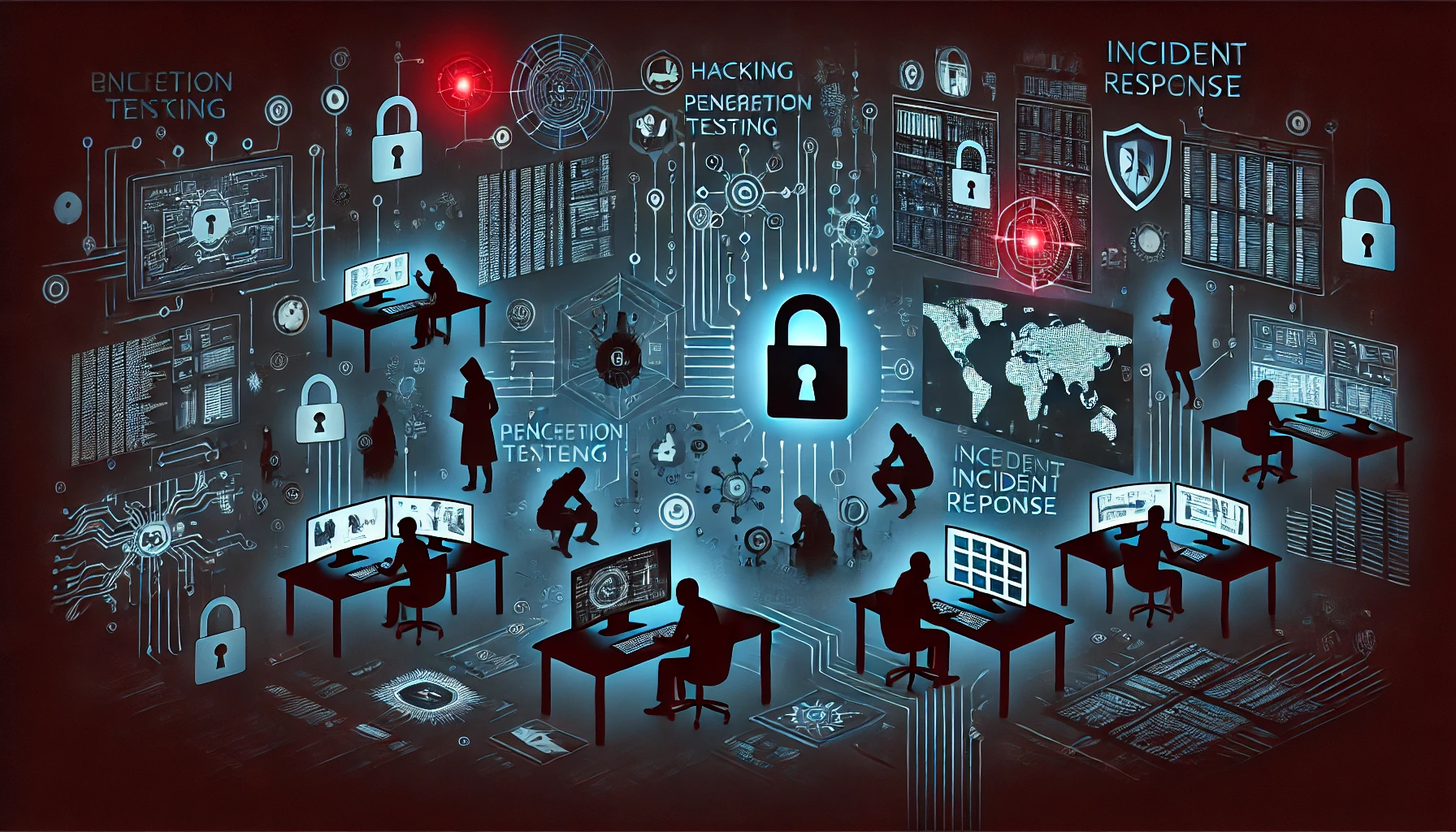The Ultimate Guide to Cybersecurity Careers: Comprehensive List of Jobs and Roles
 Dheelep
Dheelep
Introduction
Cybersecurity is a vast field with numerous career paths, each focusing on different aspects of securing systems, networks, and data. Whether you’re a beginner or an experienced professional, understanding the various roles available can help you decide on the right path. This guide explores every major cybersecurity job, categorized by their primary focus.
1. Core Cybersecurity Jobs
These roles form the backbone of cybersecurity, focusing on defense, offensive security, and governance.
1.1. Security Analyst (SOC Analyst)
Works in a Security Operations Center (SOC) to monitor, analyze, and respond to security incidents.
Uses SIEM tools, intrusion detection/prevention systems, and threat intelligence platforms.
Entry-level role with growth potential to senior security positions.
1.2. Security Engineer
Designs and implements security solutions to protect systems from cyber threats.
Works with firewalls, intrusion detection systems, and endpoint protection tools.
Requires deep knowledge of networks and security protocols.
1.3. Security Architect
Plans and designs secure IT infrastructures.
Implements security frameworks like Zero Trust and defense-in-depth strategies.
Senior-level role requiring experience in risk assessment and enterprise security.
1.4. Security Administrator
Manages security configurations, user access controls, and security policies.
Ensures compliance with industry regulations.
Works closely with IT teams to enforce security measures.
1.5. Penetration Tester (Ethical Hacker)
Conducts simulated attacks to find vulnerabilities in systems and applications.
Uses tools like Metasploit, Burp Suite, and Kali Linux.
Requires expertise in exploit development and red teaming.
1.6. Red Team Operator
Specializes in advanced attack simulation, social engineering, and physical security testing.
Works on adversary emulation to mimic real-world attackers.
Often collaborates with Blue Teams to improve defenses.
1.7. Blue Team Specialist
Defends against cyber attacks by monitoring logs, detecting anomalies, and improving security controls.
Focuses on incident response and defensive security measures.
Works alongside SOC analysts and threat hunters.
2. Cyber Threat Intelligence & Incident Response
These roles involve understanding and mitigating cyber threats before they cause harm.
2.1. Threat Intelligence Analyst
Gathers and analyzes cyber threat intelligence from open-source (OSINT) and closed-source data.
Tracks adversary tactics, techniques, and procedures (TTPs).
Works closely with SOC teams and government agencies.
2.2. Digital Forensics Analyst
Investigates cyber incidents by analyzing logs, memory dumps, and hard drive images.
Works in incident response teams to uncover attack footprints.
Uses forensic tools like Autopsy, FTK, and EnCase.
2.3. Incident Responder
Handles security breaches and investigates threats in real time.
Uses SIEM platforms like Splunk and Elastic Stack.
Develops incident response plans and playbooks.
2.4. Malware Analyst
Studies malicious software to understand how it operates.
Uses sandbox environments to dissect malware.
Works with security teams to create detection signatures.
3. Cloud & Network Security Roles
Specialized roles that focus on securing cloud platforms and network infrastructure.
3.1. Cloud Security Engineer
Secures cloud environments like AWS, Azure, and Google Cloud.
Implements IAM policies, encryption, and cloud monitoring solutions.
Works with DevOps and cloud architects.
3.2. Network Security Engineer
Protects network infrastructure by configuring firewalls, VPNs, and IDS/IPS systems.
Works with security appliances like Cisco ASA, Palo Alto, and Fortinet.
Ensures secure network design and architecture.
4. Governance, Risk, and Compliance (GRC) Roles
These roles ensure organizations follow cybersecurity regulations and best practices.
4.1. Cybersecurity Risk Analyst
Assesses security risks and recommends mitigation strategies.
Works with risk frameworks like NIST, ISO 27001, and CIS controls.
Collaborates with executive leadership.
4.2. Compliance Officer
Ensures companies adhere to legal and industry-specific regulations.
Works with standards like GDPR, HIPAA, and PCI-DSS.
Conducts audits and policy reviews.
4.3. Security Auditor
Performs internal and external security audits.
Analyzes logs and security configurations to check compliance.
Works closely with penetration testers and risk analysts.
5. Specialized Cybersecurity Roles
These roles focus on niche areas of cybersecurity.
5.1. OSINT Investigator
Gathers intelligence from open sources (social media, public records, deep web, etc.).
Works with law enforcement, private security firms, and intelligence agencies.
Uses tools like Maltego and SpiderFoot.
5.2. Security Researcher
Identifies and reports vulnerabilities in software and hardware.
Works with bug bounty programs and responsible disclosure policies.
Explores new attack vectors and exploits.
5.3. IoT Security Specialist
Secures Internet of Things (IoT) devices from cyber threats.
Focuses on embedded systems and hardware security.
Works with manufacturers to implement secure-by-design principles.
5.4. Cybersecurity Instructor / Trainer
Teaches cybersecurity concepts to students and professionals.
Develops training programs and hands-on labs.
Works with educational institutions and corporate training firms.
6. Executive & Leadership Roles
High-level positions that shape an organization's security strategy.
6.1. Chief Information Security Officer (CISO)
Leads the cybersecurity strategy of an organization.
Reports security risks to executive leadership.
Oversees security teams and compliance efforts.
6.2. Cybersecurity Consultant
Provides expert security advice to businesses.
Conducts risk assessments and security audits.
Works as an independent professional or with a security firm.
6.3. Security Product Manager
Develops cybersecurity products and solutions.
Works with developers to implement secure coding practices.
Balances business needs with security requirements.
Conclusion
Cybersecurity offers a wide range of career opportunities, from technical roles like penetration testing and incident response to governance and leadership positions. Whether you are just starting or looking to specialize, choosing the right path will depend on your interests and skill set. With continuous learning and certifications, you can build a strong career in this ever-evolving field.
Subscribe to my newsletter
Read articles from Dheelep directly inside your inbox. Subscribe to the newsletter, and don't miss out.
Written by
